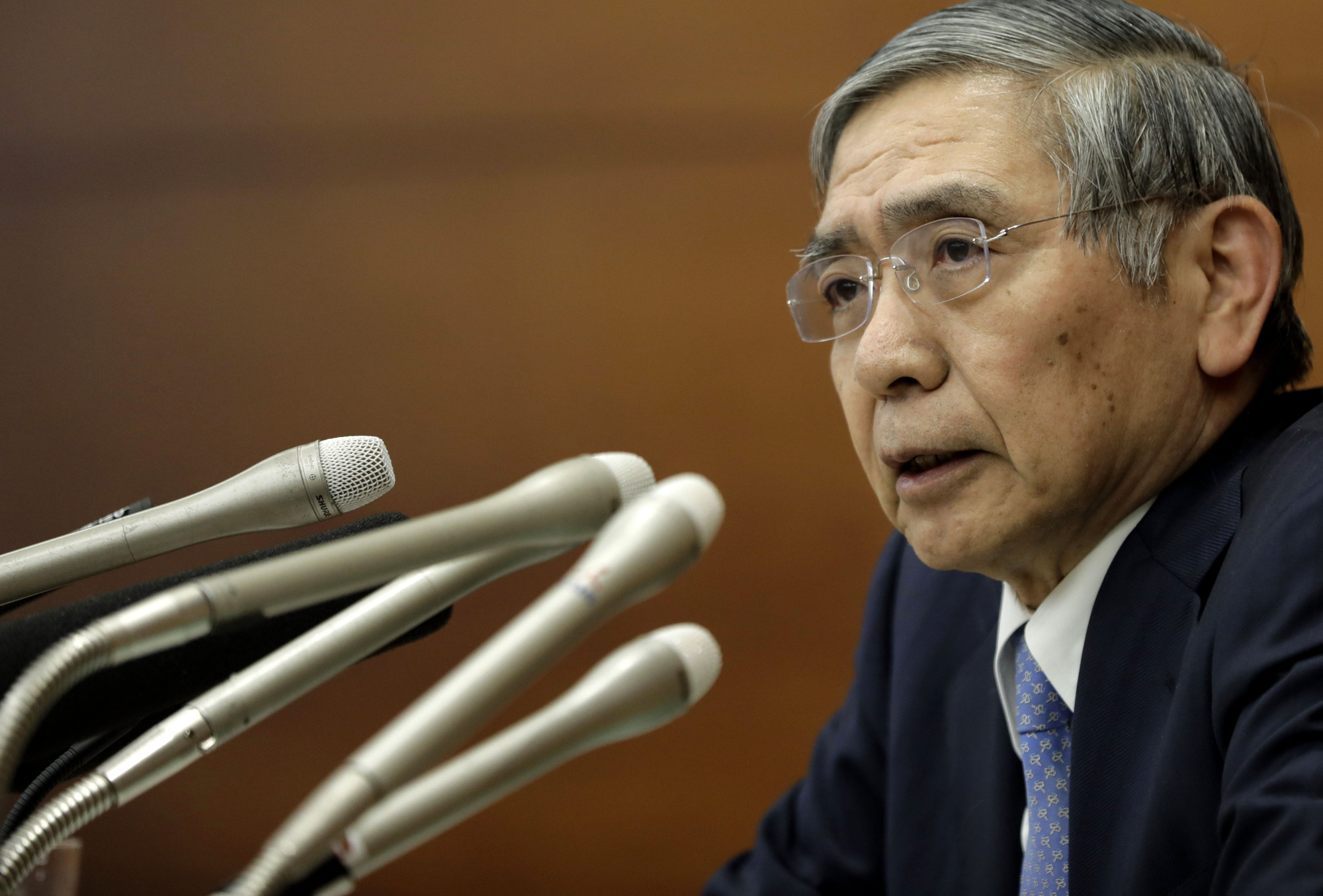The success of Prime Minister Shinzo Abe's sixth year in power is firmly in Bank of Japan Gov. Haruhiko Kuroda's hands.
That will happen when a national leader outsources the economic-reform portfolio to the central bank. Abe didn't just hand Kuroda the reins — he fobbed the entire Abenomics enterprise off to the BOJ. History will frown on Abe's decision to delegate those responsibilities in the BOJ. Therein, after all, lies the explanation for why the best run of growth in 16 years and the lowest unemployment in 23 years aren't fattening paychecks or defeating deflation.
It explains, too, why Kuroda finds himself in an impossible situation in 2018. Push further into the monetary liquidity unknown and Abe will feel even less pressure to loosen labor markets, catalyze a startup boom or increase national competitiveness. Begin withdrawing — what traders call "BOJ tapering" — and markets might go haywire in ways that imperil the growth outlook.

















With your current subscription plan you can comment on stories. However, before writing your first comment, please create a display name in the Profile section of your subscriber account page.